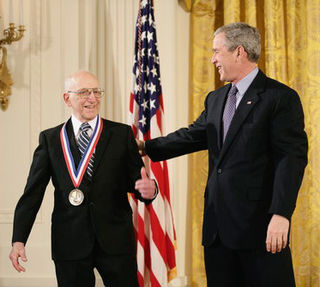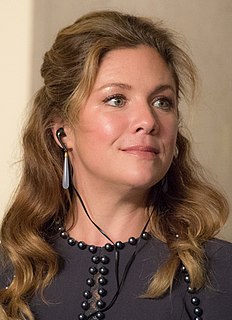A Quote by Wendell Berry
The passive American consumer, sitting down to a meal of pre-prepared food, confronts inert, anonymous substances that have been processed, dyed, breaded, sauced, gravied, ground, pulped, strained, blended, prettified, and sanitized beyond resemblance to any part of any creature that ever lived. The products of nature and agriculture have been made, to all appearances, the products of industry. Both eater and eaten are thus in exile from biological reality.
Related Quotes
The growth of the American food industry will always bump up against this troublesome biological fact: Try as we might, each of us can only eat about fifteen hundred pounds of food a year. Unlike many other products - CDs, say, or shoes - there's a natural limit to how much food we each can consume without exploding. What this means for the food industry is that its natural rate of growth is somewhere around 1 percent per year - 1 percent being the annual growth rate of American population. The problem is that [the industry] won't tolerate such an anemic rate of growth.
U.S. industries from steel-making to plastics synthesis are among the world's most energy-efficient; American agriculture is highly productive, as are America's railroads. But for decades, Americans themselves have been living beyond their means, wasting energy in their houses and cars and amassing energy-intensive throwaway products on credit.
The technological landscape of the present day has enfranchised its own electorates - the inhabitants of the marketing zones in the consumer society, television audiences and news magazine readerships, who vote with money at the cash counter rather than with ballot paper at the polling boot. These huge and passive electorates are wide open to any opportunist using the psychological weaponry of fear and anxiety, elements that are carefully blanched out of the world of domestic products and consumer software.
Buy products of genuine lasting value from brands that take their manufacturing seriously. I have things that are 75 years old, like the dinner suit of my grandfather's that was made in 1933 by a tailor in Edinburgh. Clothes develop stories. You can remember where you've been through clothing that you've worn. I want products that are going to endure. I hate that we buy things that are disposable. We need to buy products with integrity.







































